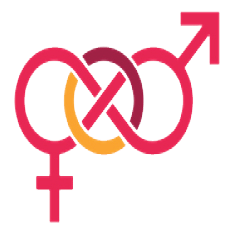
re-imagining uganda

The genesis of the Convening Reimagining Uganda project stems from a series of insightful engagements with community members, leaders, organizations, allies, experts across diverse fields, and academics. These interactions unfolded on Twitter Spaces and individual bases, gaining momentum during and after the enactment of the Anti-Homosexuality Act in 2023. The project’s inception was catalyzed by a collective reflection within sexual minorities and key populations, recognizing a critical need for a proactive approach to address the challenges they face.
A poignant realization emerged from this introspection – that sexual minorities in Uganda had predominantly operated as a reactionary movement, responding to challenges as they arose rather than proactively strategizing for the transformative change they rightfully deserve. Notably, incidents surrounding the anti-homosexuality movement showcased a pattern of agendas being created, life-threatening bills being proposed, and key populations being caught off guard since the annulment of the Anti-Homosexuality Act in 2014.
The consequences were stark – pain, profound suffering, human rights violations, and panicked responses to egregious atrocities faced by sexual minorities in Uganda, especially after the passage of the Anti-Homosexuality Act in 2023. This reality finds corroboration in reports from the Sexual Rights Tracker (SRT) and various community organizations such as HRAPF and Let’s Walk Uganda.
A pivotal observation highlighted the imperative for key populations to transition from mere reaction to strategic proactivity. Addressing immediate challenges was essential, but equally crucial was the need for a comprehensive strategy to prevent the recurrence of such incidents and prepare community members adequately. The urgency was underscored by the fact that the community faced persistent threats and bills proposed by the anti-gay movement.
Recognizing the significance of preparation, Let’s Walk Uganda took the lead in initiating community dialogues and convening sessions titled “Convening for Reimagining Uganda.” This brought together community members, thinkers, allies, activists, scholars, and organizing experts. The aim was to synergize ideas and devise collective strategies that the diverse sexual minority community could implement, thus steering a course toward the transformative change they aspire to achieve.
objectives
The main goal of this convening project was to bring together key stakeholders to engage in meaningful discussions and exchange ideas on issues affecting sexual minorities and key populations in Uganda, and to develop strategies and actions that can lead to the protection and promotion of the human rights of these individuals.
This project was to be accomplished under three specific objectives:
-
To Create a Think Tank for Public Attitude Change towards the LGBTQ Community: This objective aims to establish a think tank comprising diverse stakeholders to strategize on changing public attitudes towards sexual minorities in Uganda. This think tank will provide a platform for knowledge exchange, collaboration, and innovative approaches to address the prevailing biases and prejudices.
-
To Foster Interorganizational Collaboration on Long-Term Advocacy: This objective aims to facilitate collaboration among organizations representing sexual minorities, human rights activists, and advocacy groups to strengthen their collective efforts in advocating for the rights of key populations in Uganda. By fostering collaboration and joint campaigns, the objective seeks to amplify the impact and effectiveness of their advocacy work.
-
To Build Capacity and Empower LGBTQ Organizations and the Movement: This objective focuses on empowering organizations representing sexual minorities, activists, and individuals through capacity-building initiatives. By providing training, knowledge, and support, the objective aims to enhance their skills and empower them to actively participate in advocacy, policy development, and public engagement.